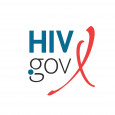On Tuesday at IAS’s AIDS 2024 in Munich, Germany, HIV.gov continued its daily coverage. Here are four updates:
NIH
Louis Shackelford of the HIV Vaccine Trials Network spoke with Dr. Carl Dieffenbach, Director of the Division of AIDS at National Institute of Health’s National Institute of Allergy and Infectious Diseases. They discussed the case report of the “Next Berlin patient,” a person living with HIV who is now in remission off of antiretroviral therapy following a stem cell transplant. Dr. Dieffenbach explained that this transplant was unique because both the donor and the recipient had a genetic makeup not previously seen in similar HIV cure case reports. They also discussed how this approach is only possible in unique circumstances when someone has a condition such as a cancer that requires a stem cell transplant, and discussed other approaches being explored for scalable HIV cure. Among them, he discussed the use of HIV broadly neutralizing antibodies—antibodies that bind to parts of HIV that remain relatively stable even when it mutates—in cure research. Finally, they discussed a new analysis from a large study of long-acting injectable cabotegravir (CAB-LA) for HIV pre-exposure prophylaxis (PrEP). Watch their conversation below and on YouTube:
Dismantling Inequities
Earlier in the day, Office of Infectious Disease and HIV/AIDS Policy’s Kaye Hayes talked with White House Office of National AIDS Policy Director Francisco Ruiz about a panel he participated in about dismantling inequities that influence the HIV epidemic. Francisco said it is important to tailor interventions and approaches to regions and be intentional about including people with lived experience to help inform policies and programs. View their conversation at the top of this blog post or on YouTube.
U=U University
HIV.gov Director Miguel Gomez spoke with CDC’s Monique Carry and PACHA’s Deondre Moore and Jesse Milan about the Centers for Disease Control’s U=U University and toolkit developed in partnership with the Prevention Access Campaign and released during the pre-conference. The U=U toolkit is a community-led health message and global campaign to communicate the science behind the message of U=U, or undetectable equals untransmittable. Our colleagues also highlighted the important impact U=U is having globally and for individuals with HIV. Watch their conversation below:
Doxy PrEP
On Monday, Kaye Hayes spoke with Dr. Troy Grennan, physician lead for the Provincial HIV/STI Program, British Columbia Centre for Disease Control and Clinical Associate Professor, University of British Columbia, about research findings he shared on the potential of doxycycline as pre-exposure prophylaxis for STIs, or Doxy PrEP. While Doxy PrEP is not yet available, the work builds on previous studies. In a small pilot study of men living with HIV, researchers looked at the efficacy, tolerability, and use patterns of Doxy PrEP. They found that doxycycline was well tolerated overall, and observed 79%, 92%, and 68% reductions in syphilis, chlamydia, and gonorrhea respectively in the group who took doxycycline compared to those who took a placebo. View their conversation below:
About AIDS 2024
The International AIDS Conference is the world’s largest conference on HIV and AIDS. Held July 22-26 in Munich, Germany, AIDS 2024 brings together an estimated 15,000 scientists, policymakers, healthcare professionals, people living with HIV, and others at the intersection of science, advocacy, and human rights. The conference features more than 200 sessions, including plenaries, symposia, oral abstracts, workshops, Global Village activities, pre-conferences, and satellites. Visit the conference website for more information.
Follow, watch, and share our coverage of the conference on HIV.gov’s Facebook page, Twitter/X, YouTube, and the LinkedIn page for the HHS Office of Infectious Disease and HIV/AIDS Policy.
This blog post was originally published July 23, 2024, on HIV.gov.








Comments
Comments